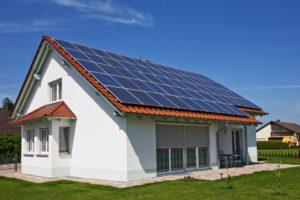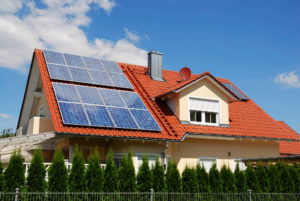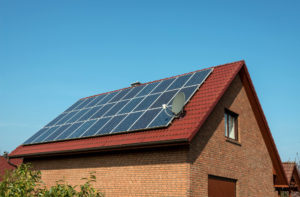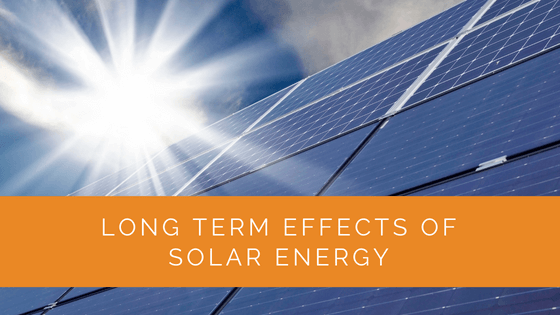Solar energy, lauded as a clean and sustainable power source, has been a game changer in how we view and use energy. This article explores the long-term effects of both favorable and unfavorable solar energy, offering a balanced perspective on its impact on society and the environment. While solar power presents a promising alternative to fossil fuels, with significant cost savings and reduced environmental impacts, it also faces challenges such as high energy demands in manufacturing and potential waste management issues. As we delve into these aspects, the article provides a comprehensive understanding of solar energy’s role in our future, highlighting the need for mindful usage and sustainable practices in this rapidly evolving sector.
Contents
Key Takeaways
- Solar energy offers several long-term benefits, including being a better alternative to fossil fuels, significant cost savings over time, and fewer negative environmental impacts like reduced pollution and deforestation.
- However, solar power also poses challenges, such as high energy demands for manufacturing, potential panel wastage due to rapid technological advancements, and the usage of chemicals in solar panel production, requiring improved recycling and disposal practices.
- To maximize the advantages of solar power and mitigate its drawbacks, there is a need for increased recycling infrastructure, potential fees on solar manufacturers for eco-friendly disposal, and ongoing monitoring of the industry’s environmental impact.
Why is Solar Power Favorable?
There’s plenty of talk about the short-term benefits of solar energy. But how exactly is it favoring society in the long run? Listed below are some benefits of solar power systems that you must consider:
Better Alternative to Fossil Fuels
Relying on fossil fuels to meet energy requirements is no longer feasible for multiple reasons. First, such resources are slowly exhausting, leaving society with no way to overcome the shortage. Also, burning non-renewable energy sources produces carbon dioxide and other greenhouse gas emissions.
On the other hand, solar energy is considered much safer and does not increase the number of toxic gasses in our surroundings. A solar panel’s carbon footprint is 20 times less than any coal-powered energy-generating source. Moreover, electricity generation requires thousands of liters of water resources yearly, which can be saved using solar for years.

Cost Savings
One of the primary motivators in opting for solar power over traditional energy sources is the potential for significant cost savings over time. A key aspect of these savings is the Federal Solar Tax Credit, which offers up to 30% of the total cost incurred, including equipment, permits, and installation. The percentage of credit you can receive depends on the installation year of the system. Systems installed between 2022 and 2032 are eligible for a 30% credit, while those installed in 2033 and 2034 receive 26% and 22%, respectively. The tax credit expires starting in 2035 unless Congress renews it.
Apart from the money saved due to shortened system payback, you will also save on electricity bills for a long stretch. Generally, solar companies provide a 25–30-year guarantee, where the system will undoubtedly generate a certain amount of power over its lifetime.
As such, you can save a significant amount. Additionally, the excess electricity generated can be transferred back to the national grid, thus giving you a chance to earn more money via net metering.
Fewer Negative Environmental Impacts
With solar panels, there is no need to cut down rainforests or uproot an entire community to dig the ground in search of energy resources. Instead, harnessing solar radiation for good can help far-off villages or remote areas initially considered unreachable by the electric grid.
Also, solar-powered vehicles do not contribute to extra noise or air pollution, significantly impacting the lifestyle of people. Chemical contaminants can result in conditions like coughing, heart issues, headaches, etc. However, switching to solar can improve the community’s overall health and provide kids with a safer environment to grow in.

How is Solar Power Unfavorable for Society?
Being a solar power manufacturer is a lucrative business in today’s era. However, in the long run, particular challenges can cause significant trouble.
Despite falling under the renewable energy category and having multiple environmental benefits, a few downsides must be considered. They are as follows:
High Energy Demands
There are many discussions on how solar is a clean energy form beneficial for the earth in several ways. However, when you dig a little deeper, you will find that the entire procedure and equipment also consume significant resources.
Solar panels require construction elements like quartz, aluminum, copper, etc. Such components must be mined, extracted, processed, transported, and stored before forming a panel.
The processing stage alone requires plenty of heat to work on quartz. Similarly, the manufacturing process must also be highly precise, thus warranting the need for non-renewable energy resources.
Buckle Up for a Panel
As technology progresses and enables the production of solar equipment at reduced costs, it’s likely that consumers will replace their panels more often in pursuit of models that are more affordable and efficient. This trend towards frequent upgrades, driven by the desire for panels that generate more power at a lower cost, may lead to an increase in solar panel waste. Without a robust recycling strategy in place, the accumulation of discarded solar panels could become a significant environmental and economic challenge, emphasizing the need for effective waste management solutions in the solar industry.

Usage of Chemicals
Preparing solar-grade silicon to be used in the panels usually involves plenty of chemicals and other hazardous materials. Considering how lenient the laws are in a country, solar manufacturers might or might not dispose of such elements correctly.
Remember, most companies are just starting and don’t have enough capital to set up a whole disposal department. However, there are some organizations where the business owner will prioritize safely dumping the chemicals and taking care of the environment over cutting corners.
Expert Insights From Our Solar Panel Installers About Long Term Effects of Solar Energy
As an experienced solar installer, I’ve witnessed firsthand how solar energy can provide significant long-term benefits. The reduction in electricity bills over time, coupled with the Federal Solar Tax Credit, makes solar a financially sound investment. Furthermore, the environmental advantages, such as reduced pollution and conservation of water resources, are crucial for our sustainable future.
Senior Solar Technician
While solar energy is a clean and renewable source, the manufacturing process does pose some challenges. The high energy demands and the use of materials like quartz and aluminum require significant resources. It’s essential that we continue to improve our manufacturing practices to minimize these impacts and focus on developing more sustainable production methods.
Renewable Energy Consultant
As technology advances, the rate at which solar panels are replaced is increasing. This trend emphasizes the need for robust recycling strategies to manage solar panel waste effectively. Implementing comprehensive recycling programs will help mitigate the environmental impact and ensure the sustainability of solar energy.
Lead Solar Engineer
Experience Solar Excellence with Us!
Trust in Solar Panels Network USA, where our seasoned experts deliver top-quality solar solutions for homes and businesses nationwide. With a legacy of countless successful installations and a commitment to sustainable energy, we’re your reliable partner in the solar journey. Ready for a brighter, eco-friendly future? Call us now at (855) 427-0058 and harness the sun’s power!
Final Words: How to Move Ahead?
Solar cells converting radiation into energy is undoubtedly one of humankind’s most significant innovations. However, not monitoring its overall use and manufacturing process will negatively impact the planet.
As more people can afford the cost of solar, there will be plenty of waste material generation. There’s a stark need for more solar panel recycling plants to deal with such issues. Another way to ensure proper eco-friendly disposal of chemicals would be imposing a fee on solar manufacturers.
Safe to say, solar power plants offer plenty of pros and cons. While you get independent of non-renewable energy resources, you also have to suffer the disadvantages of energy used during panel manufacturing.
About the Author
Solar Panels Network USA stands at the forefront of solar energy solutions, driven by a team of seasoned solar engineers and energy consultants. With over decades of experience in delivering high-quality solar installations and maintenance, we are committed to promoting sustainable energy through customer-centric, tailored solutions. Our articles reflect this commitment, crafted collaboratively by experts to provide accurate, up-to-date insights into solar technology, ensuring our readers are well-informed and empowered in their solar energy decisions.

